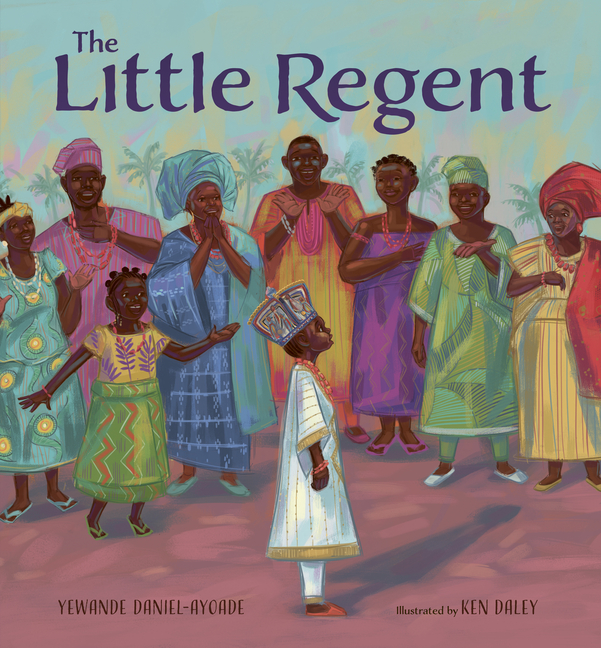Book Description
for The Little Regent by Yewande Daniel-Ayoade and Ken Daley
From the Publisher
"THE LITTLE REGENT begins with a short blurb, offering context on the Yoruba tradition of regency: "Among the Yoruba tribe of West Africa, when a king dies without a son, his daughter will rule until the kingmakers choose a new king. These female rulers are called regents." The story begins when Abioye is declared the temporary ruler of her West African village following her father the king's death, much to the chagrin of the village chiefs. At first Abioye is afraid--she is only seven after all and has no idea how to rule. But her mother reminds her of her father's wise words: "those who will rule must first learn to serve." The next day, the little regent abandons her stuffy meetings with the chiefs--where she feels that she isn't serving anyone at all--and wanders about the village, taking in the problems of her people and trying to understand how she might serve them. In the meantime, the chiefs complain that Abioye is a bad ruler who skips her meetings and walks about the village like a commoner. The time comes for the villagers to vote for a new king, but they refuse. With Abioye's help, the village has flourished: the fishers catch more fish, the cooks have clean water, and the children have a place to play while their parents go to the big market. Abioye has proven that she understands what it means to serve her people, and her people demand to keep her. For the first time in the village, a female regent becomes king. This is an empowering princess story that breaks away from Eurocentric tropes and sends the message to all children--regardless of gender--that their voices and actions are valuable and powerful. THE LITTLE REGENT touches on themes of service in leadership, gaining respect rather than demanding it, and gender equality. Yewande sets the tone with a hint of folklore and fable-esque nostalgia and builds a lively and immersive setting with details of West African culture that speak to her own Nigerian heritage. It also ends with a significant message that honouring the legacy of our loved ones for the betterment of ourselves and those around us sometimes means breaking with tradition."--
Publisher description retrieved from Google Books.


